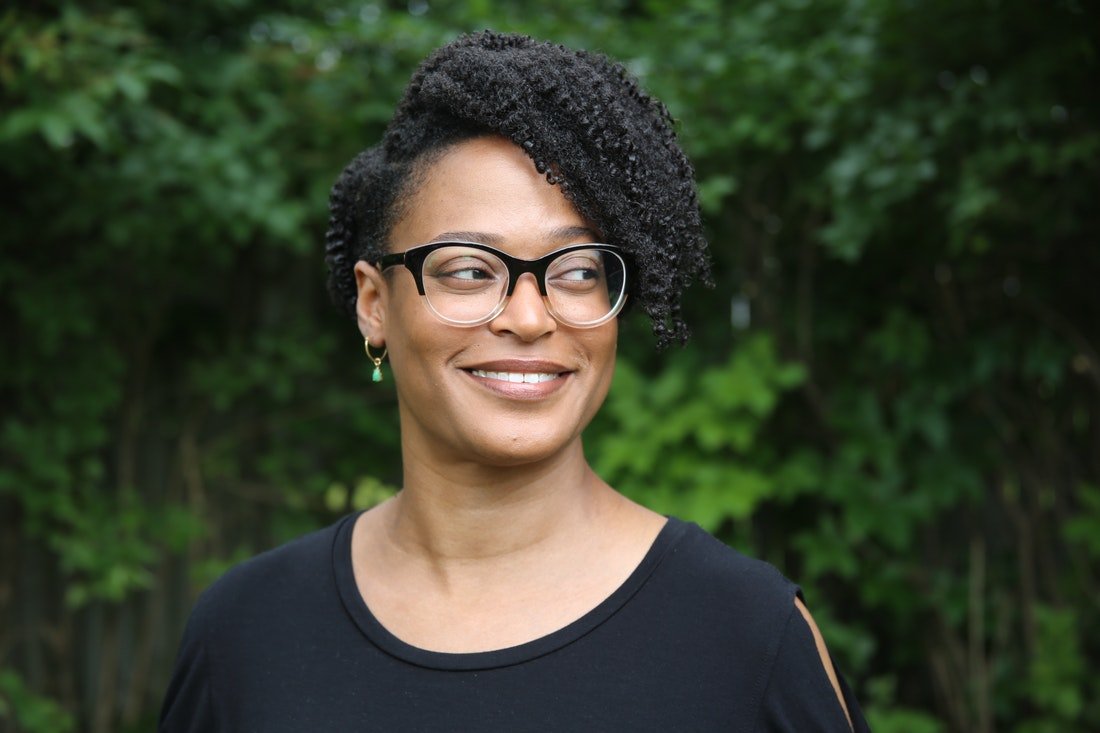Twila Dang
Twila Dang is the founder and CEO of Matriarch Digital Media. Her BIPOC in podcasting survey is here. Listen to her on Ethnically Ambiguous here. Follow Matriarch on Twitter here. Follow her on Twitter here.
What does the power of audio mean to you?
Audio is deeply personal to me. When I tell a story, the focus is on my words, their meaning and what I hope to provide for the audience. In a world that constantly tries to define me externally, audio is internal. My voice is a powerful tool. Without visual distraction, you focus more on my intention. Often, my audience is seeking support with issues that make them feel vulnerable. Audio is a safe space to explore, seek answers or just feel connected in a way with complete anonymity.
What is Matriarch doing that is different from what other media companies are doing?
I think the thing we’re doing differently is speaking to women with unconditional love and support. We love women exactly the way that they are. And we will support them exactly as they are whether they want to make changes in their lives or not. Too often, traditional media aimed at or for women pushes a “your broken but fixable” narrative. When women find our content, I want them to feel valued.
You ran a survey for BIPOC podcasters. What was the most insightful thing you learned?
Biggest takeaway - we are have two very different understandings of how BIPOC functions in our industry. When we asked what the biggest issue facing podcasters is, our BIPOC participants spoke of lack of access, lack of pipeline, lack of training and discrimination. Our white participants overwhelmingly cited audience growth… Imagine what this means when productions are coming together? When we are hiring. If the issue isn’t an issue for the group in the majority of power-wielding positions, how will we ever make lasting progress?
What should companies and big orgs do to be more inclusive? What steps should be taken to hire more BIPOC creators?
I have A LOT of ideas. But I no longer feel comfortable just giving them away. Creating the BIPOC Women Podcast Survey has highlighted for me the need to pay people for their emotional and intellectual rigor. Often, employees from marginalized groups carry the weight of highlighting, fighting for and implementing systemic change. Often as an added, UNPAID, set of duties that accompany their jobs. It’s unfair and honestly, lazy on the part of those in leadership positions. The satisfaction of knowing that you helped make a difference in your workplace (or industry) is NOT ENOUGH.
I was struck by the inequities your survey unearthed. What are things podcast listeners (like me) can do to support BIPOC creators? Or does it only come from the top?
Here’s the thing, we all have power that can be used to make our system better. You need to look at what you have the capacity to do and then do it. Do you mentor? Do you recommend your talented BIPOC colleagues for jobs (and not just the jobs that are focused on BIPOC narratives). Do you build teams with diversity in mind? (and not just racial/ethnic diversity - age, ability, size, class, experience diversity!) Do you build budgets for pay equity? There is a ton you can be doing. Don’t wait for someone to ask.
Thanks, Twila!

